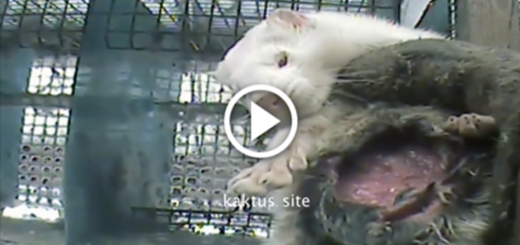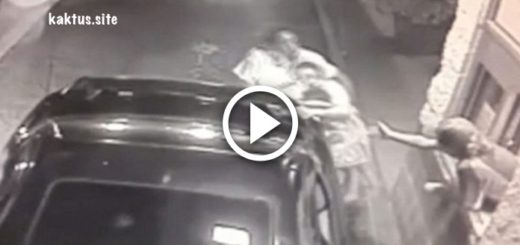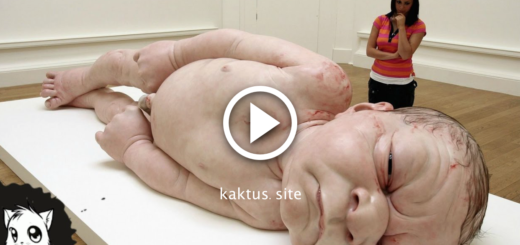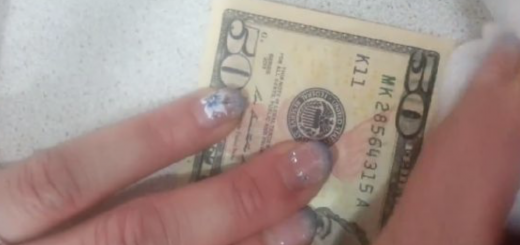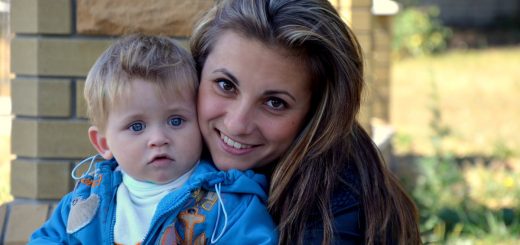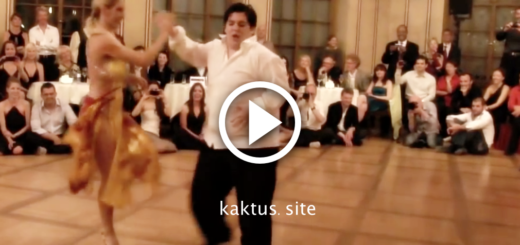I helped them both. I always helped. When Randall’s first investment deal fell through and he needed to bridge the gap, I wrote him a check. When Trevor’s partner skipped town with their business funds, I dipped into my pension. No questions. Just love.
That’s what mothers do. And when Marlene started getting sick, when the letters stopped being funny and started repeating themselves, when she couldn’t remember what she’d said five minutes earlier, I was the one who found her a doctor. I drove her to every appointment.
She hated the idea of assisted living, so I turned the guest room into her own space. «She’s not our responsibility,» Trevor had said one day when I asked him to pick up her prescriptions. «You’re her sister.»
I didn’t answer; there was nothing to say. But Marlene had always known the truth. People say things like that when they believe they’ve already claimed their share.
She never had children, never married, said she had enough family to manage, thank you. She was witty, sharp, and wore perfume even when she didn’t leave the house. One night, maybe a year after she’d moved in, she asked if we could write our wills together.
«People change their minds when there’s money on the table,» she said. «Let’s not give them the chance.»
We met with a lawyer, Mr. Harold’s predecessor, and had everything done by the book. Two signatures, two witnesses, each of us naming the other sole beneficiary. I remember thinking it was more ceremony than necessity, but I went along with it.
Years passed. Marlene’s mind faded, but she still smiled when I read her poetry, still called me «baby sister» even when she couldn’t recall what day it was. She died on a Thursday morning in her sleep, peaceful. I sat with her for two hours before calling anyone, not out of denial, but respect. Some people deserve a soft goodbye.
The funeral was small, just family and a few neighbors. Randall gave a speech that sounded rehearsed. Trevor stood stiffly, hands in pockets. Neither of them had visited her more than twice in the last year, but after the service, things changed.
They both started asking about the estate. Randall called more often. Trevor came by unannounced. They offered to help. «You shouldn’t handle this all alone, Mom.»
I let them. I watched. I waited. When the letter from Winslow and Chambers came in the mail, I didn’t tell them. It was addressed to me: full name, correct address, no mistake.
Then last week, I overheard Randall on the phone while he thought I was outside. «She doesn’t need to be there,» he said. «We’ve got the final draft. It’s all lined up.»
I went upstairs, opened the safe, and took out the navy folder. Everything they thought was lined up had been signed away years ago. Still, part of me hoped I was wrong, hoped they were just being careless, not cruel. But today proved otherwise. Today, they blocked my seat.
Marlene and I were born eleven months apart, almost to the day—Irish twins, people called us back then. I was the quiet one, always reading, always watching. She was the spark, the one with red ribbons in her hair and too many opinions for a girl her age. We shared a bedroom until we were sixteen.
She taught me how to fake a headache to skip school and how to lie convincingly if you ever got caught sneaking pie from the fridge. I taught her how to budget, how to write a proper thank-you letter, and how to keep secrets without breaking under pressure. Our parents died young, a car crash on the interstate a week before my nineteenth birthday. Marlene was eighteen.
We were alone in the house we’d grown up in, two girls with no compass but each other. We sold the place within a year and moved into a rental, took jobs, paid bills, and figured things out. I met Derek at the library, of all places. He was fixing the heating unit and said my voice sounded like music when I read aloud to the children.
I said he was trying too hard. He said, «Trying’s half the battle.» I married him a year later.
Marlene never married, but she lived a full life. She traveled when she could—Greece, Canada, even Japan once. She taught English, managed an art gallery, and worked in radio. Her stories never ended where you thought they would.
Every time she came home, for Christmas or my birthday or just because, she brought something odd: a stone shaped like a heart, an apron with embroidered frogs, a jar of pickled onions from a street market in Dublin. The boys adored her when they were young. «Aunt Mar!» they’d yell, running to meet her at the door.
She’d twirl them around, let them stay up past bedtime, and feed them candy before dinner. Derek would wink at me and say, «She’s not here to raise them; she’s here to remind them life can be loud.» That changed over the years. Once Randall got into college, he stopped showing up when she visited.
Trevor followed suit, though with less sharpness. They grew tired of her, said she was «too much.» I watched it happen like watching a faucet drip, slowly then constantly, until one day you realize the whole sink’s wet.
When she moved in after her diagnosis—mild cognitive decline, then early-stage Alzheimer’s—neither of them offered help, not even a visit. «Too busy,» they’d say. Marlene knew, even in her forgetfulness, she knew. One day, as I brushed her hair, she said softly, «They’ll come when I’m gone. Watch them, like pigeons at a park bench, only pecking when there’s something to take.»
It wasn’t bitterness, just recognition. She said it the way you say, «It might rain tomorrow.» Her decline was steady but slow. First, she forgot how to use the microwave; then she started misplacing her keys. Then she began introducing me to visitors as her neighbor instead of her sister.
I never corrected her. What would have been the point? But there were moments, moments when she’d look at me and her eyes would spark and she’d say, «May, if I ever forget who I am, just remind me who you are.» I promised I would, and I did.
I took care of her until the very end. It wasn’t always easy. There were nights she wandered outside and I had to chase her barefoot down the sidewalk. There were mornings I found cereal in the freezer and milk in the cupboard, but I never lost patience. Because love isn’t just about joy. It’s about holding the line when someone else is drifting.
Near the end, she stopped speaking. Just small hums, sometimes a nod. But when I sat on the edge of her bed and held her hand, she always turned toward me. The day before she passed, she squeezed my hand twice. Once for hello, once for goodbye.
I didn’t cry when she died, not immediately. Grief has its own clock. But now, weeks later, I feel her absence in strange places: the extra teacup I forget to put away, the sound of wind chimes that no longer move.
And today, in that room, when Randall stood in front of me like a bouncer and said, «You’re not mentioned here,» I wanted to laugh. Not because it was funny, but because if Marlene had been in that room, whole, sharp, standing, she would have said, «You boys are about to learn what it means to underestimate a woman who’s already lost everything but her pride.» That’s why I brought the folder—not to stir drama, not to win, but because I promised my sister I’d remind them who I was. And I intend to keep that promise.
The morning after the will reading, I sat at the kitchen table with a cup of tea gone cold and the envelope still sealed in front of me. It held a certified copy of the original will, the one Marlene and I signed together. Notarized, witnessed, and stored for years in my fireproof box, untouched. I hadn’t opened it since. I didn’t need to; I knew every word by heart.
A dull ache had settled behind my eyes. Not a headache, just a kind of weight. The kind you carry when you know something irreversible has started. I wasn’t angry, not yet. I was noticing.
I was noticing how Randall hadn’t called, not even a text. Trevor either. The silence wasn’t accidental; it was strategic. They needed time to regroup, to find a way to spin what had happened in that office. Or maybe they were waiting for me to die of embarrassment.
That had happened once before. When Derek passed, I’d made the mistake of trusting Randall with the estate paperwork. He was the older son, more responsible, I thought. Within two weeks, he’d convinced me to sign over the deed to the family home. «Just until probate clears, Mom. It’s simpler for taxes.»
I signed, not understanding the implications. Two years later, I had to beg him not to refinance it under his name. He said I was being dramatic. That was the first time I felt it—the shift. The tilt from Mom to obstacle.
Trevor was more subtle. He didn’t ask for control; he asked for sympathy. When he needed a new transmission, it was just a «short loan.» When his third girlfriend left him, I was the one who cleaned out the fridge and scrubbed his apartment while he cried on the couch. He’d never yell at me. He’d just forget to say thank you.
And slowly, over the years, I stopped offering. Not out of malice. Just preservation.
The envelope on the table gleamed in the morning light. I reached out, opened the flap, and slid the papers onto the table. My handwriting was there, beside Marlene’s, on the last page. Firm. Clean. No trembling in the pen. We’d been so sure, so united.
«This document is irrevocable unless jointly dissolved with written consent of both parties,» it read. She never revoked it. And I never wanted to. Even as her mind unraveled, she still trusted me to remember for both of us. Now the trust was written in legal ink.
I sat there a long time, reading the pages as if they were a letter from her. In a way, they were. After a while, I picked up the phone and dialed a number I hadn’t called in nearly a decade.
«Winslow and Chambers, this is Dana speaking.»
«Hello, dear. Could I speak with Mr. Harold, please? It’s May Delacroix.»
«One moment, Mrs. Delacroix.»
He picked up on the third ring. «May, I was just about to call you.»
«Is that so?» I asked, letting the edge in my voice show.
«Yes. I’ve reviewed the documentation. It’s solid. Your claim is not only legitimate, it takes precedence. You are the sole legal heir. The other will, frankly, should not have been processed without consulting the earlier agreement.»
«So it’s done.»
«It’s done,» he confirmed. «I’ve filed notice with the registrar. The estate is being transferred to your name—the house, the land, the investment account, everything listed in the 2008 will. You should expect a formal confirmation by the end of next week.»
I thanked him and hung up. Then I stared out the window. The dogwood tree Marlene planted in 1995 was blooming again, pale pink blossoms stretching like arms into the air. I’d always wondered why she chose that tree, said it reminded her of something delicate but defiant. That day, I understood.
The house was too quiet, not the silence of peace, but the silence of anticipation, like the second before a doorbell rings. And I knew they would come. Not today, but soon. They would come with apologies, explanations, justifications, all dressed as concern.
They would come with flowers they didn’t choose and smiles that didn’t reach their eyes. They would say things like, «We were confused,» and «It’s not what you think.» And I would nod. Because I’ve learned that nodding often tells more truth than words.
That’s when I made my decision. Not about revenge; that was never my goal. But clarity. This wasn’t about making them suffer. It was about making sure they never again mistook my silence for weakness.
I reached for my notepad, wrote down a name, then a second, then a third. A plan was beginning to form, one that would take patience and precision and me—fully awake, fully present, fully unwilling to be ignored. Not anymore.









